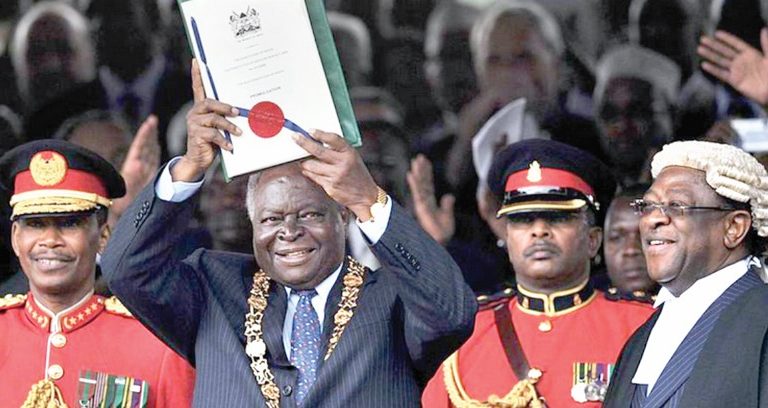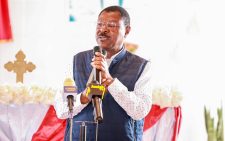Kenya: East Africa’s beacon of democracy

East Africa’s political history is a tragic but familiar tale—a majority of nations in region are gripped by the iron hand of power, where every genuine step toward liberation has often been met by ruthless suppression. From the first breath of independence to the present day, the cycle of centralised power, crushed dissent, and broken promises has replayed itself with devastating consistency. Must this region remain forever shackled to its authoritarian past?
The seeds of dictatorship were sown not at independence, but long before, during colonial rule. Colonial administrations in Kenya, Uganda, Tanganyika, Rwanda, Burundi, and Somalia perfected the art of repression, political exclusion, and authoritarian control.
In Kenya, the British colonial government responded to the Mau Mau rebellion (1952–1960) with one of the harshest counter-insurgency campaigns in modern imperial history. Over a million Kenya’s nationalist were herded into detention camps and “emergency villages,” subjected to forced labour, torture, and psychological warfare.
British administrators justified these atrocities in the name of maintaining order—an eerie foreshadowing of post-independence regimes that would employ similar justifications for their brutality. How could a nation birthed in chains easily embrace freedom?
In Tanganyika (modern Tanzania), the Germans, and later the British, imposed systems that deliberately excluded Africans from political power, culminating in violent suppressions like the brutal quelling of the Maji Maji Rebellion (1905–1907), where tens of thousands perished. The legacy was clear: dissent would be answered with overwhelming violence.
In Rwanda and Burundi, colonial powers—first Germany, then Belgium—entrenched ethnic divisions by favouring one group over another, establishing Tutsi dominance through indirect rule. They institutionalised ethnic identity cards, setting the stage for deep resentments that would later explode into horrific violence, including the 1994 genocide. How can democracy flourish when colonial masters themselves sowed seeds of hatred and division?
Somalia’s colonial experience under the Italians was marked by exploitation and oppression, particularly under Mussolini’s Fascist regime, which treated Somali territories as laboratories’ for racial hierarchy and brutal economic extraction. Similarly, in Uganda, the British employed a policy of divide-and-rule—empowering Buganda elites while marginalising other communities, fostering resentments that later fueled post-independence conflicts.
Thus, at independence, East African nations inherited not systems of accountability and participatory governance, but rigid, centralised States accustomed to ruling over subjects rather than serving citizens.
Ruled through terror
Uganda’s Idi Amin Dada ruled through terror between 1971 and 1979, unleashing ethnic persecution, political purges, and economic chaos. Mengistu Haile Mariam’s “Red Terror” in Ethiopia stained the land with the blood of thousands, all in the name of revolution.
In Somalia, Siad Barre turned his promised socialism into a brutal dictatorship that plunged the country into anarchy. Eritrea’s Isaias Afwerki, ruling since 1993, remains an unrepentant autocrat presiding over what political commentators often liken to a giant prison camp disguised as a nation. In these early years, democracy was little more than a distant dream, crushed under the boots of men who mistook fear for loyalty.
But history did not end with the first generation of strongmen. In Uganda, Yoweri Museveni once promised a “fundamental change” after overthrowing a succession of despots. And yet, after almost four decades in power, what is left of that promise? Today, Museveni’s regime stands accused of the very sins he once denounced: arresting opposition figures like Robert Kyagulanyi (Bobi Wine), orchestrating brutal crackdowns on dissent, and manipulating laws to extend his rule indefinitely. Dr. Kizza Besigye, a former ally turned fierce critic, was even once tried in a military court—a gross violation of the principle that civilians should be judged by civilian tribunals. Although the courts later affirmed this basic right, how many more injustices were allowed to fester before justice finally spoke?
Tanzania, long praised for its stability under Julius Nyerere, has not been immune to backsliding. Under John Magufuli’s (now late) heavy hand, political freedoms shrank dramatically. His successor, President Samia Suluhu Hassan, initially raised hopes for a thaw—but reality quickly crushed those hopes. Today, as Tanzania stands on the brink of elections, opposition leader Tundu Lissu has been incarcerated without bond under her regime.
In Rwanda, Paul Kagame is lauded internationally for his economic achievements and impressive state-building efforts after the horrors of the 1994 genocide. Yet beneath the gleaming skyline of Kigali lies a troubling reality: political space is suffocating, opposition parties are systematically harassed, and critics often encounter long prison sentences. Can true democracy flourish when fear silences even the whisper of dissent?
Burundi, too, serves as a grim reminder of how fragile progress can be. After years of relative peace following the Arusha Accords, the country descended into chaos when President Pierre Nkurunziza clung to power beyond his constitutional term limits. Protesters were crushed, opposition leaders exiled, and a culture of fear firmly entrenched. Although Évariste Ndayishimiye now sits in the presidency, the heavy hand of the State still looms over political life. Will Burundi ever reclaim the spirit of hope that once flickered so brightly after its brutal civil war?
Somalia’s trajectory has been even more painful. Following the collapse of Siad Barre’s dictatorship in 1991, the country imploded into decades of lawlessness, clan warfare, and extremist insurgencies. Despite recent attempts at rebuilding State institutions, true democracy remains distant.
Amid this dark canvas, Kenya shines as a rare beacon of hope. While Kenya’s post-independence journey was far from smooth—with decades of one-party dominance under KANU and moments of severe repression—it is precisely Kenya’s hard-won battles that explain its current democratic maturity. From the agitation for multiparty democracy in the late 1980s and early 1990s, to the painful lessons of the 2007-2008 post-election violence, Kenya has been forged through fire. Unlike many of its neighbours, Kenya’s elites ultimately yielded to pressure from civil society, churches, and an energised citizenry demanding accountability.
The promulgation of the 2010 Constitution marked a turning point: devolution of power to counties, creation of independent commissions, protection of the judiciary, and a stronger bill of rights—all designed to fence in executive excesses. Since 2002, Kenya has witnessed multiple peaceful transitions of power, including historic moments where opposition figures—such as Mwai Kibaki in 2002, Uhuru Kenyatta in 2013, and William Ruto in 2022—rose from outside the ruling elite to assume the presidency. Where else in East Africa has the opposition truly seized power through the ballot and been allowed to govern?
Kenya’s success is not accidental; it is the outcome of relentless struggles by ordinary citizens, robust civil society activism, an independent judiciary, and a vigilant media environment. It is a story of imperfections, setbacks, and messy politics—but also of resilience and hard-won gains. Compared to her neighbours, Kenya remains East Africa’s “good boy” on democracy because it has internalised the hard lessons of its past and because its people continue to insist—again and again—that democracy is worth fighting for.
Still, across much of East Africa, old strategies of control persist: the criminalisation of dissent, the cynical manipulation of constitutions, the politicisation of courts and electoral bodies, the silencing of the press. These are the time-tested tools of those who fear the people they claim to serve.
The struggle for democratic space in East Africa is far from over. But it endures—because beneath every jail cell door slammed shut, beneath every rigged election, beneath every silenced voice, there beats an unyielding yearning for justice, freedom, and dignity.
The question is not whether East Africa deserves democracy. The real question—the one history demands we answer—is this: will the forces of repression continue to define East Africa’s future, or will the people of this proud region finally seize their long-delayed destiny just as Kenya has demonstrated to the rest of the region?
The writer is a History Lecturer & UASU Chapter Trustee, Alupe University-Kenya















